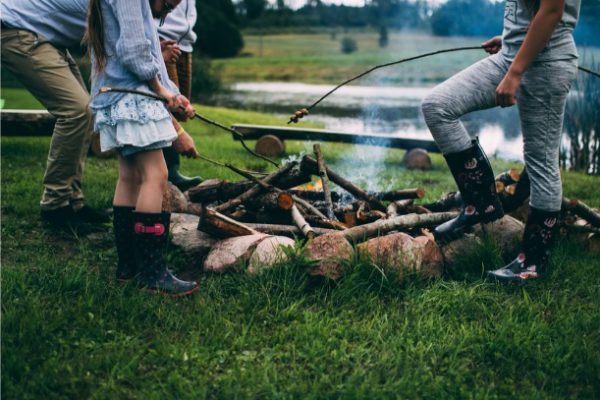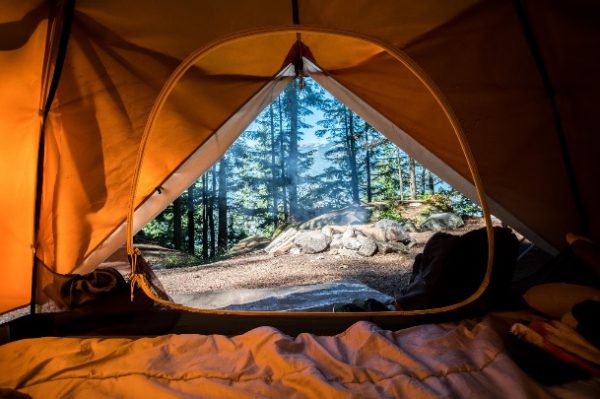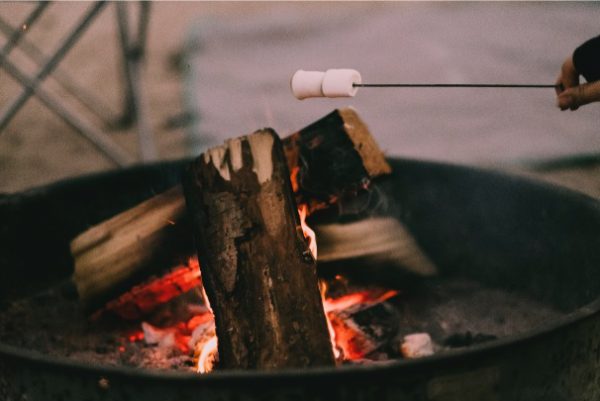7 Tips for Planning the Ultimate Family Camping Trip
Category: article
Nov 7th, 2019 by Keith Worrall
Modified Nov 7th, 2019 at 9:54 AM

7 Tips for Planning the Ultimate Family Camping Trip
If you’ve ever gone camping with kids, you’ll know that it will be one of the most memorable holidays – for good reasons or bad! The key to planning a successful camping trip is to plan.
Have a well thought, yet simple, plan to ensure fun for the whole family. To help you along, we’ve put together a list of 5 tips when planning the ultimate family camping trip. Things most often overlooked from the most obvious things to the subtle equipment like a portable speaker to create a fun atmosphere.
So let’s start!
Selecting your Spot
When looking for a great camping spot, be sure to factor things like – is it safe for kids to roam free? If you’ve got very small children, you wouldn’t want open bodies of water, for example. Be sure to look at what the area has to offer, and make sure it suits your family and what you’d like to get out of the trip.
You also definitely don’t need me to tell you that traveling with kids has its own set of challenges to know this. With that in mind, try scout for camping spots that are closer to home and don’t require too many long hours in the car with kids. This helps prevent you from feeling like you just want to turn around and go back home by the time you get to your destination.
Following on from that – travel by car. This allows you to have enough space to pack all your favorite camping gear and supplies, as well as the kids’ favorite games too. Pack enough snacks to keep the kids happy for the journey there and perhaps some to keep them busy when you first arrive and need time to set up the tent.
Reserve your Spot
What was the key to planning a successful camping trip with the family? Ah yes – plan! Once you’ve selected your spot, book it before you arrive. There really is nothing worse than arriving at a camping ground with a car full of very excited kids, only to find out it is fully booked out.

Save yourself the tears and have that checked off before you even leave your home. If not, you might find yourself being forced to stay in a guest house instead. This adds a lot of extra cost to your trip, leaving you with less to spend on fun activities or it means a shorter trip.
Pack Smart
Make a list of all the essentials you’ll need for the trip. If you’re not sure, here are some essential items every family will need for a camping trip:
• Tent
• Sleeping bags and mattresses
• Firewood or a Gas stove.
• Fire starters (matches or a lighter)
• Pots, plates, bowls, cups, cutlery, etc. (Paper plates are your friend!)
• Drinking water
• Clothing and warm jackets
• Shoes
• Towels
• Garbage bags
• Torch or headlamp
Some extra things to think about packing in to help make your trip great include:
• Playing cards
• Fishing gear such as Blackfish
• Board games
• Water toys if there will be an area for swimming.
• Bicycles
• A portable speaker as mentioned earlier
• Musical instruments – guitar, harmonica, etc.
• Wet wipes
Keep it Simple
What was the other aspect I mentioned to planning a successful trip? Keeping it simple! Provide quick, easy snacks for the kids to have between meals that don’t involve much preparation or clean-up. Try going for things that everyone enjoys, so you don’t have to pack a huge variety to accommodate each individual person. Pre-packing “snack bags” is also a really useful idea. You can pre-pack a bag for each child/ person for each day – which then includes their favourite snacks and keeps everyone happy. Because everyone generally snacks throughout the day – dinners also don’t need to be huge heavy meals either. Be sure to pack in an adequate supply of drinking water if that will not be available, and definitely don’t forget the s’mores!
Sooner Rather than Later
Don’t procrastinate setting up your tent. Do it as soon as you arrive. The sooner this is done, the sooner everyone can relax and enjoy their vacation. When planning your trip, account for enough travel time so that you do not arrive at the camp site when it’s dark. Let the kids get involved in helping to set up, it’s a great learning opportunity!

Another good idea to do when you first arrive is to walk with all the children to the bathroom so that they are familiar with where it is and how to get there and back without getting lost.
If there are any dangerous areas, be sure to address this with your children and set very clear boundaries on where they can and can’t go.
Safety first
Following on from my previous point – it’s important to set some clear rules to ensure everybody’s safety. Often the excitement of the new surrounding means kids want to run off and go and explore the moment you get there. Use the car ride there as an opportunity to talk about the rules so that they are well versed by the time that you arrive. You can also quiz them throughout your stay to make sure they understand.
Some important safety issues to address include:
• Not wandering off without telling you or another adult where they’re going.
• Find out about the wild life in the area before going. Make sure you know what wild animals or snakes like in the area, how to deal with it and then also warn the children about it too.
• Be sure that all the children know to stay away from open fires unless there’s an adult around.
• As a general rule, they should also not eat anything growing in the wild. Be careful of poisonous mushrooms or plants.
Make sure you’ve packed in a decent first aid kit as well – as accidents do happen.
Wild and Free
The last point on our list is to allow your children to explore and be free! The best part of camping is to enjoy the outdoors. Let them get lost in the beauty of nature, try keeping your tech to a minimum. You’ll find they will invent their own games and will probably spend hours entertaining themselves. Do have a few games or activities planned for them, but reserve those for the moments when they get bored or need ideas on things to do.